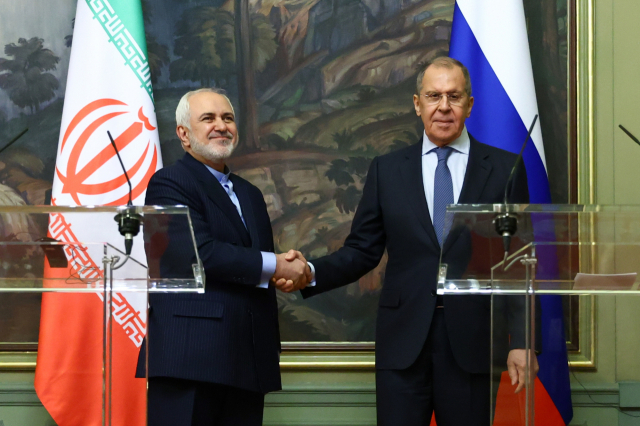◆Biden and Putin talk over the phone
Despite restrictions on nuclear warheads and IBCM
Intensifying confrontation with the’Return of the US-Iran Nuclear Agreement’
Russ, it’s hard to expect to accept Navalni’s release
The US, China and Russia are worried about the deepening
Europe and signs of a rift… Alliance policy shake
 viewer
viewer
U.S. President Joe Biden and Russian President Vladimir Putin agreed to extend the nuclear disarmament treaty during telephone talks. However, it is expected that Biden’s administration will deepen concerns as it has not been able to narrow down the disagreement on bold issues such as the Iranian nuclear agreement and the release of Alexey Navalni, and the bilateral relations can act as a major variable in US public policy.
According to CNN broadcast on the 26th (local time), President Biden spoke with President Putin for the first time after taking office and agreed to extend the New Strategic Arms Reduction Agreement (New Start) by five years. The New Start Treaty was last for the purpose of preventing indiscriminate arms race by limiting the number of nuclear warheads of both countries to 1,550, and stipulating the number of nuclear carriers such as intercontinental ballistic missiles (ICBM), submarine-launched ballistic missiles (SLBM), and strategic bombers to a maximum of 700. It was signed in 2011. The former administration of Donald Trump was reluctant to extend the treaty, saying that China should be included in the treaty, but the Biden administration reportedly announced its intention to extend it to Russia first.
 viewer
viewer
Except for this, however, both sides were dreaming of a frostbite. First, the two sides interpreted the same currency differently. The White House said to President Putin that it has made it clear that “we will resolutely respond to the malicious actions of Russia.” On the other hand, Russia said in a statement that “the two countries have decided to cooperate in the field of the new coronavirus infection (Corona 19) pandemic and trade and economy.” Even the core of the call was viewed differently.
In particular, Russia and Iran urged the United States to return to the nuclear agreement. Russian Foreign Minister Sergey Lavrov stressed that “we are convinced that the nuclear agreement must be fully restored without any conditions,” after meetings with Iranian Foreign Minister Mohammad Javad Zaryf in Moscow. US Secretary of State Tony Blincoln previously drew a line, saying, “Unless Iran fully complies with the agreement, the US will not rush to return to the agreement.” It seems that both sides have judged differently even the prerequisites for the restoration of the agreement.
Navalni can also be a hot potato. It is reported that the Kremlin Palace is watching the situation as it judged that this protest could spread to an anti-government movement by stimulating public dissatisfaction accumulated by the Corona 19 pandemic and economic crisis. Among these, some point out that if the US pressures Russia together with alliances such as the European Union (EU), Russia can provocate for a transition.
The US calculation of anti-Russian policy has become more complex. This is due to concerns that China-Russia’s honeymoon relations may be strengthened, which could spark fire on popular policies. On December 28 last year, after President Biden’s election was confirmed, the Chinese and Russian leaders said in their currency, “If the two countries cooperate, we can effectively face all attempts to repress and divide the two countries.” In fact, on the 25th, when the US demanded Russia to release Navalni, China said, “China is firmly opposed to all forms of internal intervention.”
The Biden administration’s policy toward Europe, which promised to strengthen the alliance, could also be entangled. This is because the White House evaluated the gas pipeline construction project between Germany and Russia as a “bad deal” and said it would review sanctions, and Germany had been protesting against it as a simple project. In particular, on the same day, former German Prime Minister Gerhard Schröder revealed in a recently published book that he should withdraw from the North Atlantic Treaty Organization (NATO, NATO) and establish a European army to escape unilateral dependence on the United States. There were also concerns about it. For this reason, Jim Townsend, a former US Department of Defense official, predicted that “the US will seek stability rather than re-establish relations with Russia.” This means that rather than responding hardly to human rights issues that Russia considers sensitive, we will first implement a policy to minimize conflicts with Russia.
/ Reporter Kwak Yoon-ah [email protected]
< 저작권자 ⓒ 서울경제, 무단 전재 및 재배포 금지 >
